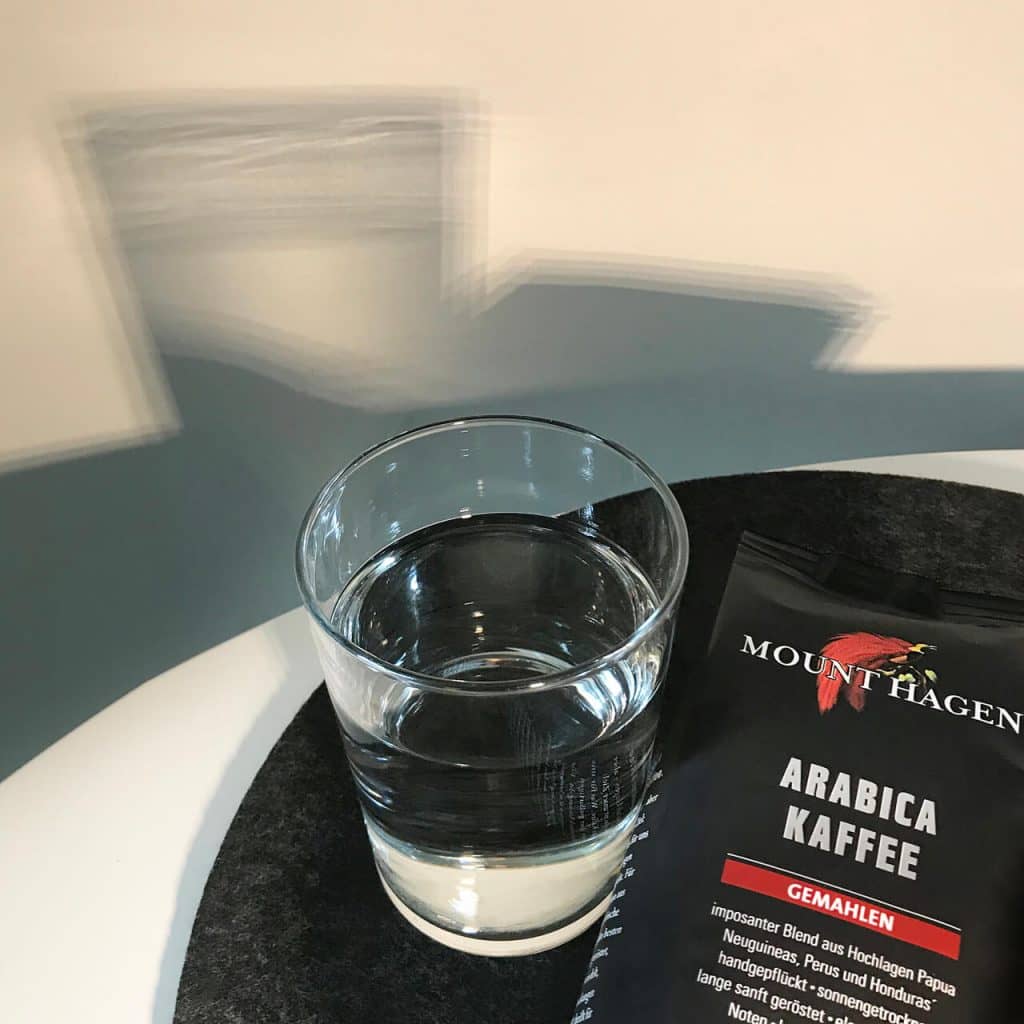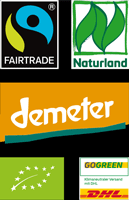It’s a pretty big deal – after all, it doesn’t just make up 98.5% of coffee. During brewing, it also “triggers” flavor release. So there’s no doubt: if the water isn’t up to scratch, the coffee won’t be either.

As the world’s largest coffee organization, the SCAA (Specialty Coffee Association of America) has issued a handbook with guidelines on which water is best for coffee brewing.
AS WELL AS ODOR AND COLOR,
it specifies the following aspects:
Chlorine: 0mg/l
Total dissolved solids (TDS): 150mg/l
Hardness: 4 (68mg/l)
Alkalinity (TA): 40mg/l
pH: 7.0
Sodium: 10mg/l
You can usually get information about your water from your utility company. Alternatively, you can pick up a test kit from an aquatics store.
Of course, there’s a rule of the thumb here, too: soft to moderately hard tap water is OK, but could also be filtered.
The role water plays in coffee shouldn’t be underestimated.
photo:
Lichtenford-Design

We don’t recommend using mineral water (not least for environmental reasons). If necessary, use an activated charcoal filter for your coffee water – this will help.
It all depends on your personal preference. Do you like your coffee strong? Or less so? The standard measure is 60 grams of coffee per liter of water.
So if you want one large cup or mug of coffee, you’ll need 250ml of water. And 15g of coffee. Incidentally, this is also why coffee aficionados tend to arm themselves with a set of digital scales. Here, too, it’s worth taking some time to hit the sweet spot – you’d be surprised the difference a couple of grams makes.
A little tip: for a delicious cup of Mount Hagen, you’ll probably need a little less coffee.
Phone +49 (0) 40 753 04 – 485
Fax +49 (0) 40 753 04 – 492
e-mail: info@mounthagen.de
